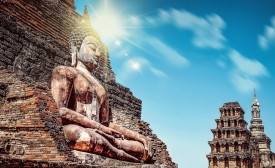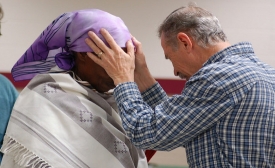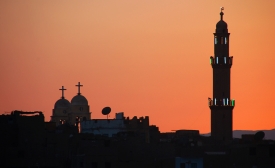faith diplomacy

How do China and India compare in their use of Buddhism in faith diplomacy?
Immigration [...] has recently become the focal point of President Trump’s first weeks in office. In response to his travel ban, which suspends the refugee program and prevents immigration to the United States from seven predominately Muslim countries, a variety of groups and organizations have spoken out about what it means to be American, how we should move forward with immigration, and what intrinsic values are essential to the success of the United States.

A look at the response of some U.S. Christian churches to President Trump's travel ban
This Saturday, February 11th, food fair Junta Local will take place from 10AM in the grounds of Botafogo’s Christ Church. With free entry and continuing until 6PM, the artisanal culinary fair hopes to promote cultural inclusivity and exchange through different international cuisines.
Pakistan can receive millions of tourists annually if there may be peace and infrastructure in areas where these ancient sites and relics were located. If Pakistan government take the initiative, it could kick start a massive hospitality industry in the region earning billions of dollars foreign exchange annually.
Soon after coming to power, Prime Minister Narendra Modi prudently decided to emphasise India’s rich tradition of Buddhism in a soft-power approach to Asian geopolitics. Apart from countries like Nepal, Bhutan, Japan, Sri Lanka, South Korea, Mongolia and others, he even struck a direct chord with China to revive India-China ties.

A new podcast by the U.S. State Department explains the role of religion in foreign policy.







